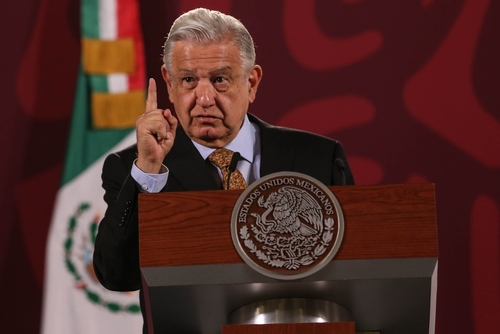
In a move that has stirred controversy and raised concerns about checks and balances, President Andrés Manuel López Obrador of Mexico has stood firm behind his earlier proposal for the dissolution of six autonomous regulatory bodies, including the National Council for the Evaluation of Social Development Policy (Coneval), responsible for measuring poverty in the country, the National Institute for Transparency and Access to Information (INAI), and the Federal Commission of Economic Competition (Cofece).
The president’s proposal comes amidst a backdrop of legislative challenges for López Obrador, who has faced significant pushback from the legislative branch throughout his administration. Out of 80 proposals presented by the president, known as AMLO, only 54 have been approved, marking him as the president with the lowest success rate in legislative initiatives. Moreover, his attempts have often met resistance from the various checks and balances in Mexico’s republican system, prompting him to resort to media discourses and legal battles, including appeals to the Supreme Court of Justice.
Despite these obstacles, López Obrador is pressing forward with his agenda, presenting a broad and far-reaching set of initiatives on Monday, February 5th. However, experts warn that the odds are stacked against him, given the resistance and scrutiny his proposals have faced.
Critics argue that the proposed elimination of autonomous regulators raises concerns about the concentration of power in the executive branch and threatens the independence of key institutions responsible for oversight and accountability. Coneval, for instance, plays a crucial role in assessing the effectiveness of social policies, including poverty alleviation programs, while INAI ensures transparency and access to information regarding government and state actions. Cofece, the antitrust watchdog, is tasked with promoting and preserving fair competition in the Mexican economy.
Opposition leaders, civil society organizations, and experts have voiced their objections to the president’s plans, warning of the potential consequences for democracy and governance in Mexico. They argue that such measures could undermine institutional integrity and erode public trust in government institutions.
Featured News
Big Tech Braces for Potential Changes Under a Second Trump Presidency
Nov 6, 2024 by
CPI
Trump’s Potential Shift in US Antitrust Policy Raises Questions for Big Tech and Mergers
Nov 6, 2024 by
CPI
EU Set to Fine Apple in First Major Enforcement of Digital Markets Act
Nov 5, 2024 by
CPI
Six Indicted in Federal Bid-Rigging Schemes Involving Government IT Contracts
Nov 5, 2024 by
CPI
Ireland Secures First €3 Billion Apple Tax Payment, Boosting Exchequer Funds
Nov 5, 2024 by
CPI
Antitrust Mix by CPI
Antitrust Chronicle® – Remedies Revisited
Oct 30, 2024 by
CPI
Fixing the Fix: Updating Policy on Merger Remedies
Oct 30, 2024 by
CPI
Methodology Matters: The 2017 FTC Remedies Study
Oct 30, 2024 by
CPI
U.S. v. AT&T: Five Lessons for Vertical Merger Enforcement
Oct 30, 2024 by
CPI
The Search for Antitrust Remedies in Tech Leads Beyond Antitrust
Oct 30, 2024 by
CPI